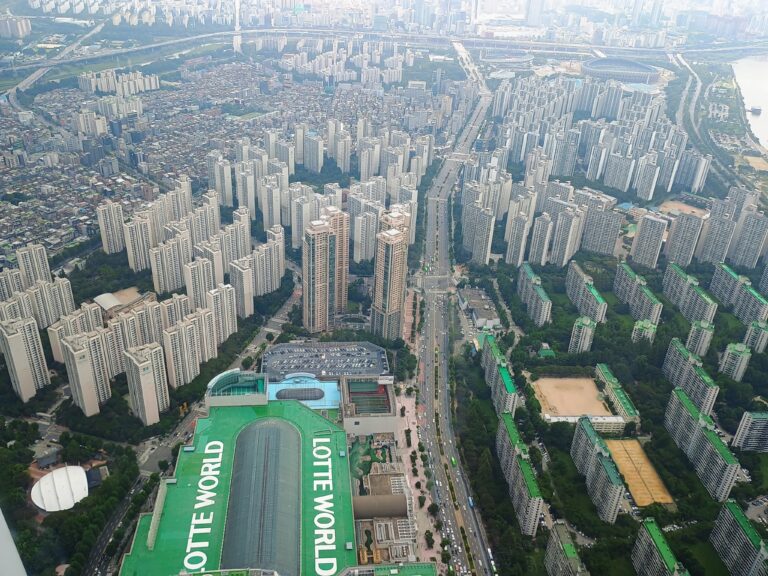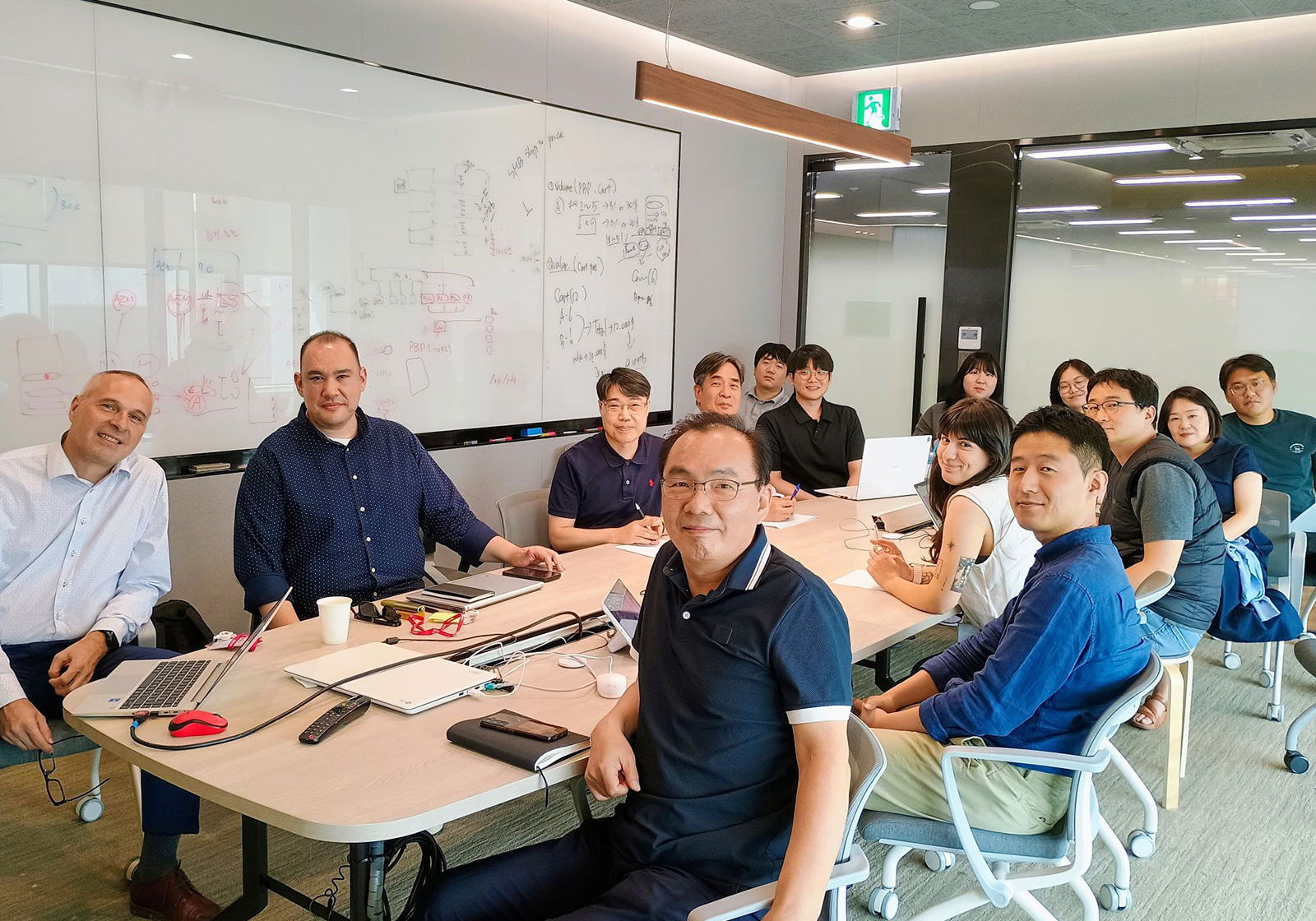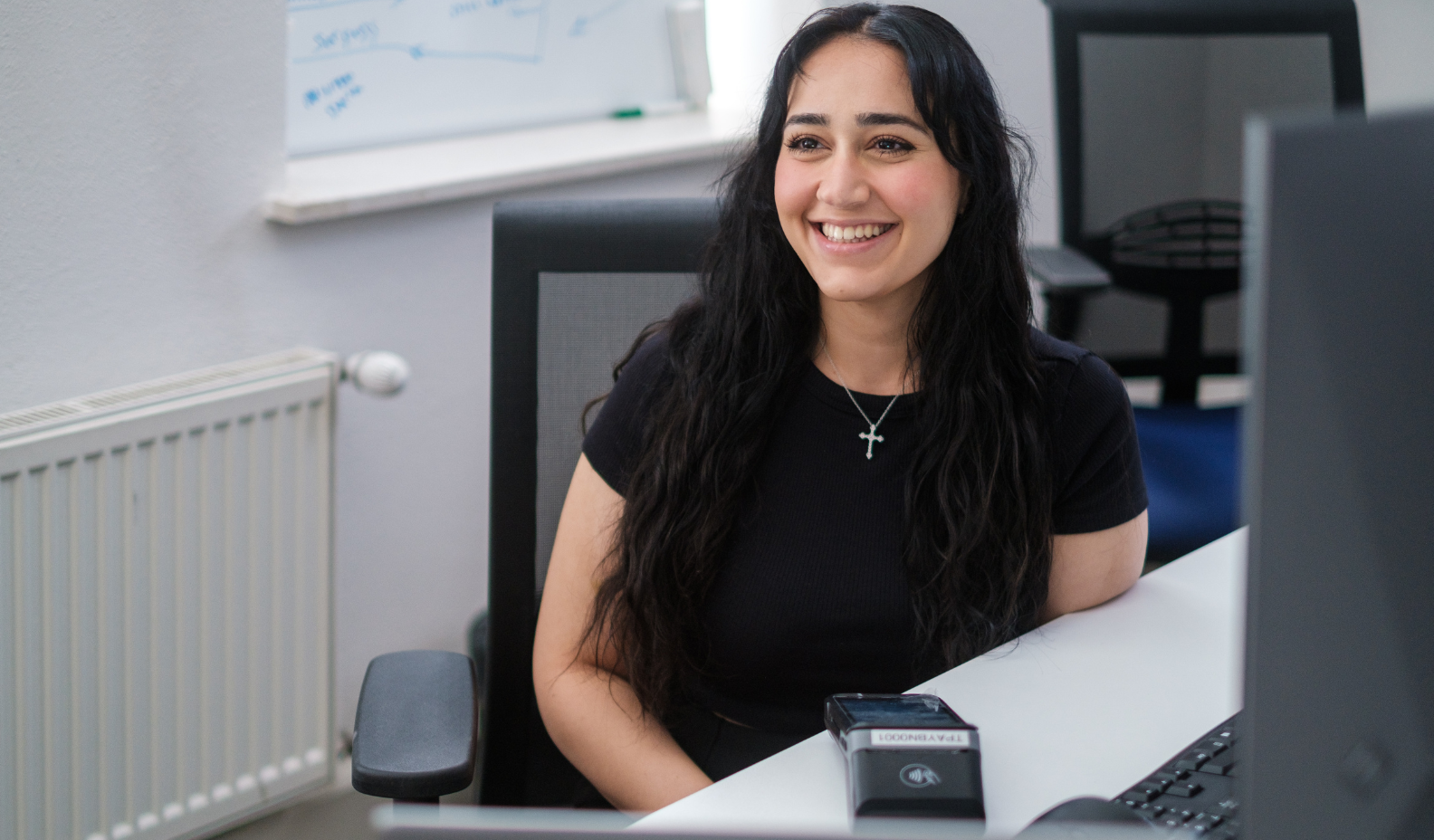Eduard Nesiba joined Monet+ just three months after its founding—nearly 28 years ago. At that time, the company focused on banking software, particularly around in-house banking systems and launching a chip card-based digital wallet. Today, Eduard continues to play a key role at Monet+, where he acts as a crucial link between business development and technical delivery.
“I connect business with development. I’m responsible for the technical design of our projects. While our sales team handles the commercial side, I design the technical solution, consult with clients to ensure the concept makes sense, and then hand it off internally. That’s how we build the technical framework of a deal. I attend all meetings with new clients to stay aligned on the project’s progress,” says Eduard.
Why Did LG Request a Transport Payments Consultation?
South Korean technology leader LG recently sought consultation on a transit payments project. Through long-term business relationships—particularly with Monet+ team member Jan Šilar—LG turned to Monet+ as a trusted advisor. The request was part of LG’s involvement in a major public transport tender.
Where’s the Gap?
LG has a division that develops closed-loop transport payment systems and has delivered several large-scale deployments around the world—including in Seoul, Athens, South America, Malaysia, and New Zealand. In Athens, a project is currently underway to expand the existing system to support open-loop bank card payments.
However, LG lacks experience with EMV standards and fare payment models based on MTT (Mastercard Transaction Types) and PAYG (Visa’s Pay As You Go). This is new ground for them.
“I help them understand how EMV fare payments work so they can make informed decisions. Once they see how complex the process is—how many systems, certifications, and specifications are required—they start to realize that it might be better to buy the solution rather than build it. And of course, we believe the best solution comes from us,” Eduard explains.
What’s Next?
Eduard's work is taking him around the globe. After two more weeks in Seoul, he will spend a month and a half in Athens, returning home in December. His expertise, built across nearly three decades at Monet+, continues to shape the future of transport payment systems worldwide—connecting not only technologies but also regions, clients, and ideas.

What did a typical day in Korea look like?
“We started at 9 a.m. every day in the office. Each morning, the team would brief me on what happened the day before. They hold their own meetings with subcontractors, which I don’t attend, but they bring me the issues they encountered and ask for possible solutions. After that, we focus on current matters and plan the next steps. That’s how our cooperation works.”
In the early phase, Eduard’s main focus was on education—explaining the fundamentals of bank card payment systems, especially contactless transactions.
“I prepared daily presentations and training materials. That first phase was about laying the groundwork. The second phase moved into system design: they provided their input, and I proposed technical solutions.”
His next trip will involve system testing in Seoul, followed by deployment in Athens.
What’s the Korean work culture like compared to ours?
“They mostly use cards, but the system is a bit different. Local banks issue their own proprietary cards, so in addition to Visa and Mastercard, you see a lot of local options that people prefer. And the payment terminals? Completely different from what we’re used to.”
“They don’t use PINs at the terminal—you sign instead. Every terminal has a touchscreen for your signature. You only use your PIN at ATMs, never during regular purchases.”
Is that secure?
“Apparently it works for them.”
Was there anything that personally surprised you in Korea?
“Definitely the density. Seoul has 10 million residents living on just 600 square kilometers—that’s like squeezing everyone from Otrokovice to Vizovice into one compact space. But despite that, people are incredibly considerate of one another.”
“If someone has a cold, they automatically wear a mask. It’s a common courtesy, and you see it everywhere. With that many people, you just can’t afford to be inconsiderate—it simply wouldn’t work.”
Final question, Eduard: Did you experience any culture shock?
“Honestly? The biggest one was bread. They don’t have real bread! Everything’s sweet—it’s like brioche or sweet rolls. That was tough to get used to.”
We wish Eduard continued success on his next assignment and look forward to more insights from his travels. His work reminds us that behind every smart system is a human story—and often, a surprising one.


